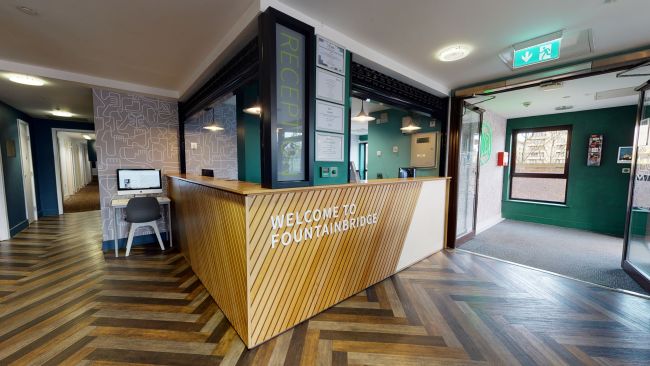Understanding the university application process
Deciding you are going to study at university is one of the biggest decisions you will make, so before you rush into anything, be sure to consider all your options. Consulting your school or college’s careers advisers can be useful, whether you have clear plans for what you want to do in the future or not.
If you have a particular course in mind, you can also do some preliminary research by contacting the relevant institution to ask any questions you may have, or by attending Open Days. You may also want to explore alternative study routes like degree apprenticeships – a combination of a work placement and university study – or distance learning through the Open University or similar.
Take the time to work out what’s best for you. When you have decided on your dream course, this guide will help you understand the important points of the application process for UK universities.
Starting your university application
Once you have reached the decision that you’re going to apply for university, it’s worth getting to know what the application process entails and how much time you have to complete it.
The Universities and Colleges Admissions Service (UCAS) processes all applications for UK universities, and you will need to register with them in order to apply. You can do this online and apply directly (international students can only use this method), but it may be the case that your school or college handles students’ applications and sends them to UCAS on your behalf.
Check if your school or college does this because it may mean you need to submit your application a little earlier than you would otherwise.
There is a fee for using the UCAS application service. For 2022, this is £22 for one course, or £26.50 if you apply for multiple courses – you can apply for up to 5 courses.
University application deadlines 2021
There are some key deadline dates you will need to keep in mind when applying for university.
UCAS opens applications for 2022 on 7th September 2021. You can therefore submit your application from the date onwards, although you can begin preparing it online ahead of time.
For most courses, you will have until 6pm (UK time) or 26th January 2022 to apply. However, if you want to apply to Oxford University, Cambridge University, or for most courses in medicine, dentistry or veterinary science, you will need to submit your application by 6pm (UK time) on 15th October 2021. Make sure you check the deadlines for your chosen courses, as they may vary.
Bear in mind that some courses have additional requirements, such as admissions tests, which will need to be completed along with your application. Places on courses will be filled as offers are made, so it’s advisable to make your application as soon as possible.
Check the entry requirements for your chosen courses
Courses will ask for certain minimum grades for your A-levels or equivalent. It is possible that you may be offered a place on a course even if your actual grades don’t end up matching your predicted grades, as this forms just one part of your application.
Some courses also use a system called UCAS Tariff points. This system allocates a certain number of points to a grade – the higher the grade, the higher the points – and the entry requirements may ask for a minimum number of UCAS Tariff points. Not every institution uses this measure, however.
Completing your university application
Once you have registered in the UCAS Hub, you can begin your application. There is quite a bit to complete, and you will need to complete every section required, so prepare to take some time on this.
You will be asked for information around your personal circumstances, residency status and how you will fund your studies, as well as details of your education and qualifications to date. You can also enter details of any employment you may have had.
As well as the details of the courses you want to apply for, you also need to write a personal statement. This is your chance to tell your chosen university about yourself and why they should give you a place. This section is an opportunity to express your interest and enthusiasm for your subject, but it also gives your university a fuller picture of you as a person. You may want to mention any voluntary work or other activities you have been involved in, for example.
There is a character limit to work to – typically a minimum of 1,000 characters and a maximum of 4,000 characters – so it’s worth drafting a version with this in mind before you complete your application. You will want to use the opportunity wisely, so make sure your personal statement presents you at your best and is free of errors.
Finally, you will also need to ask a teacher, or education professional who knows your academic work, to write a reference for you.
Receiving offers from universities
After you have applied, you may be invited for interviews at your chosen university and, ultimately, receive an offer of a place. How long the application process will take varies from one university to another, but they will need to come back to you by 19th May 2022 if you applied by 26th January 2022.
Offers can be either conditional or unconditional. If it’s unconditional, the place is yours, but there may still be some requirements stipulated by the university. For example, background or financial checks. Make sure you are aware of these before you accept. Also be aware that if you accept an unconditional offer, you are committing yourself to that institution. If you later changed your mind, you would have to use Clearing to find an alternative and apply there.
Conditional offers are usually made on the basis that you achieve the required exam grades (and sometimes UCAS Tariff points) and may contain additional requirements. For example, you may need an ‘A’ grade in a specific subject, or a certain number of Tariff points may need to be achieved via a particular route. If you’re not sure you will meet the requirements, it’s worthwhile making use of the ‘insurance choice’ option – your back-up choice.
Some conditional offers can become unconditional as long as you firmly accept them – again, this means you’re committing yourself to that university. Make sure you understand all the details of the offer.
Sometimes an application may be unsuccessful for whatever reason or withdrawn by either party. If you don’t receive any offers from your (up to) five choices, you may be able to make further applications through UCAS’ Extra service. Look out for this option on UCAS Track – this is where you will find all the details of your applications, get notifications of any offers or invitations to interview, and where you can respond.
What to do after Results Day
Those with conditional offers will need to wait for Results Day for confirmation of their grades. Providing you got what you needed, you will then be able to move on with arranging your student finance and accommodation.
If you didn’t get the grades required, you can still find a university place through Clearing – the system which matches students to available university places.
Applying for UK universities from overseas
If you are from overseas and planning to study in the UK, you can still apply via UCAS, but there are some other requirements. You will also need to apply for a student visa and, if English isn’t your first language, you will need to take an English language test. You can find more information about these requirements, as well as details of possible financial support and other useful information here: UCAS international students.

